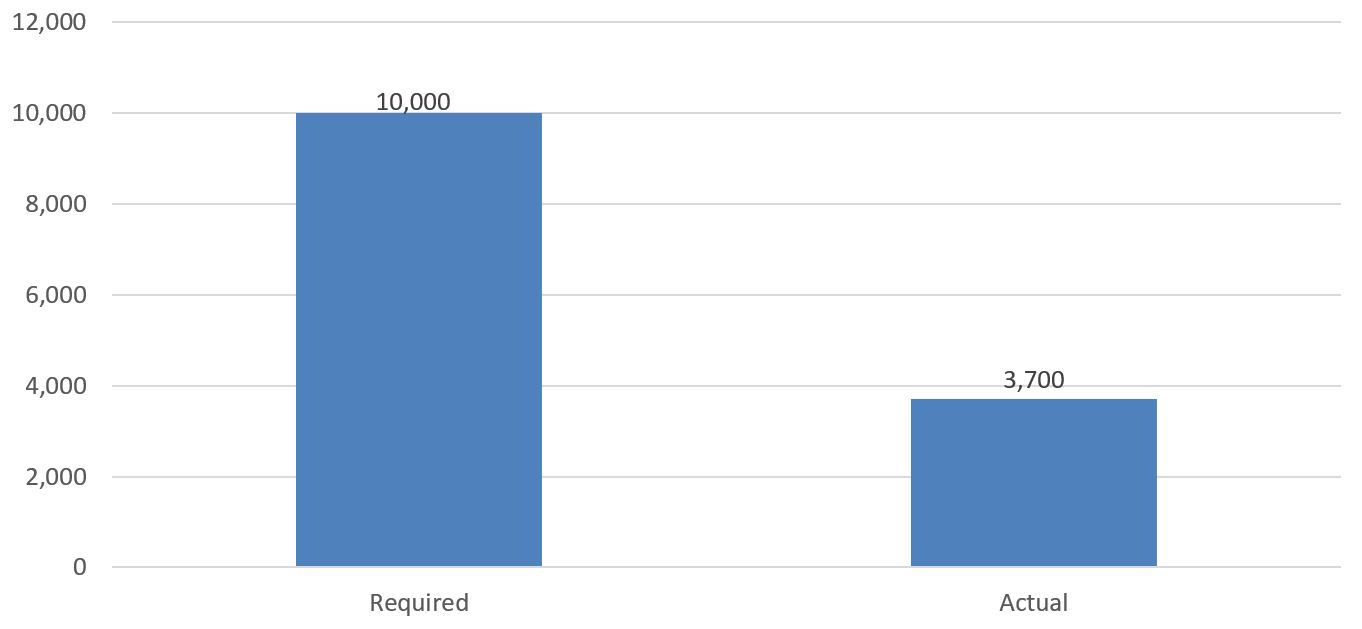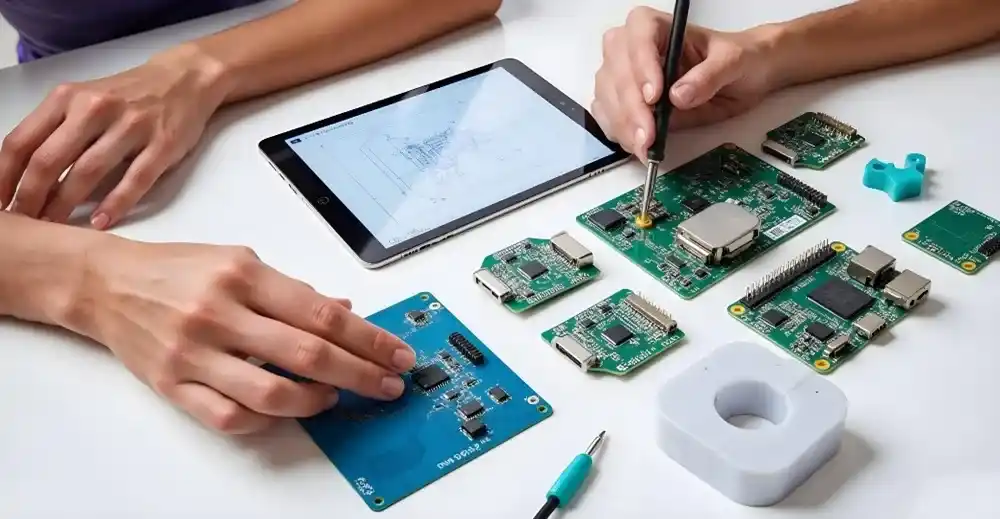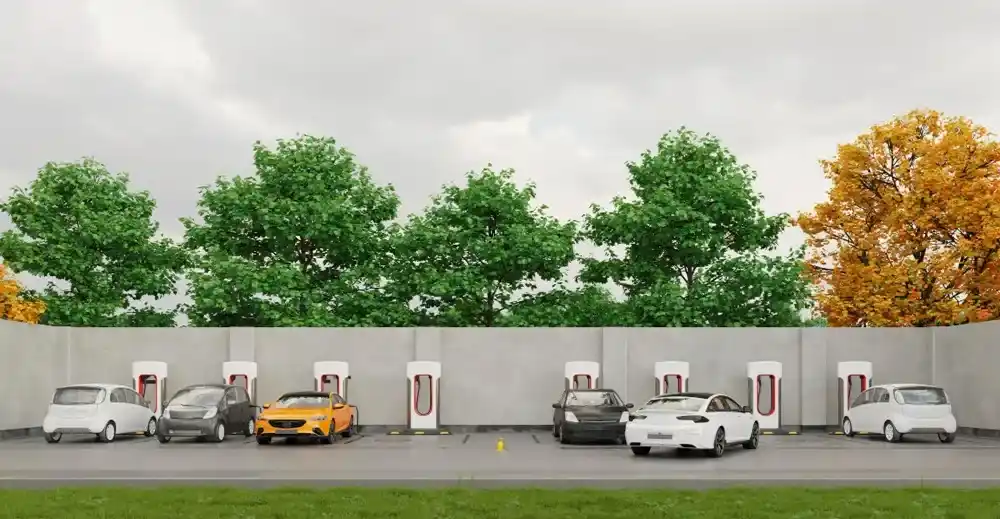Exploring the 5G Ecosystem in India: Opportunities and Challenges

With the advent of 5G in India, mobile operators in India have the chance to expand into international markets, and consumers benefit from the economies of scale. The economic potential of any nation can rise with the aid of high-speed connectivity, and in turn, 5G technology will have a prominent role in shaping the future. Almost every sector of the economy is going through a digital transformation fueled by connectivity. The Indian government established the High Level 5G India 2020 Forum in 2017, which includes three secretaries of important Ministries/Departments, including Telecom, Meity, and DST, as well as famous specialists like academicians, stakeholders from industry organizations, and IT industry professionals. The main objectives of the forum are to deploy 5G in India as soon as possible and to create a manufacturing and product development ecosystem that is globally competitive, aiming to capture 10% of the global market and 50% of the Indian market over the next five to seven years. To foster innovation and research in 5G, the government has created a program called "Building an End-to-End 5G Test Bed." The funding for this three-year initiative was authorized at Rs 2,240 million (USD 25 million), and it started in March 2018. The SAMEER, CEWIT, IITs in Madras, Hyderabad, Delhi, Kanpur, and Bangalore's Indian Institute of Science (IISc) received the program reward. The program's objective is to create 5G proof-of-concept prototypes that broadly adhere to 3GPP specifications.
Research and Investments by Telecom Operators
According to a joint official statement by Reliance Industries Limited and Jio Platforms Limited, Qualcomm Ventures agreed to invest up to Rs. 730 crores (USD 85 million) in Jio Platforms in July 2020 at an equity valuation of Rs. 4.91 lakh crore and a firm value worth Rs. 5.16 lakh crore. With this investment, Qualcomm and Jio Platforms' relationship will be strengthened as Jio Platforms rolls out sophisticated 5G infrastructure and services for Indian users.
Further, Airtel and Ericsson carried out the first 5G network demonstration in India in a rural area in Oct 2021. Although the location was more than 10 kilometers from the test site, a commercially available 3GPP-based 5G handset could connect to the 5G test network and achieve 100+ Mbps speeds throughout the trial. Further, Airtel claimed to have completed India's first 5G testing in the 700 MHz bands in collaboration with Nokia in Nov 2021. Nokia's 5G portfolio featured Nokia AirScale radios and a standalone (SA) core, both of which were deployed by Airtel. Additionally, Airtel and Capgemini announced their agreement in December 2021 to combine their experience in networking, 5G solutions, and System Integration (SI) abilities to provide enterprise-grade 5G solutions to the Indian market. The development centers will be Capgemini's and Airtel's 5G labs, both of which are located on their campuses in Mumbai. In the 5G Lab at Airtel, Capgemini has indeed presented two 5G use cases. These emphasize smart health and comprehensive remote support for site repairs and operations. These use-case solutions use augmented reality, computer vision, video analytics, and AI/ML technology.
Moreover, Vi and Ericsson declared that their 5.92 Gbps peak download speed during the 5G trials represented a technological milestone in May 2022. Vi achieved the mark for the first time while conducting 5G testing in Pune, Maharashtra, using Ericsson Massive MIMO radios, the New Radio-Dual Connectivity software, and a dual-mode 5G core for Standalone architecture. The trials combined 5G trial spectrums from the mid-band plus high-band (mmWave) bands. To accelerate the adoption of 5G devices in India, trials on utilizing street furniture to deploy aerial fiber and small cells were conducted by Vodafone Idea (Vi) in July 2022 in Bhopal and Bangalore. These pilot projects seek to provide accessibility to cross-sectoral infrastructure to hasten the rollout of 5G networks. 5G small cells were tested using street furniture such as foot-over bridges, city bus shelters, street light towers, smart lamp posts, billboards, indication boards, and street signs.
Spectrums Acquired by Telecom Operators
The major Indian network carriers acquired 5G spectrum during the auction conducted by the Department of Telecommunications (DoT), Government of India, in August 2022 and formed various collaborations to expand the 5G ecosystem. Jio, India's leading digital service provider, secured spectrum in the bands of 700MHz, 800MHz, 1800MHz, 3300MHz, and 26GHz.This will allow Jio to create the most cutting-edge 5G network worldwide and further consolidate India's position as a world leader in wireless internet connectivity. Additionally, Airtel secured a 19,800 MHz spectrum by securing a 26 GHz and 3.5 GHz band footprint over all of India for a total value of Rs 43,084 cr. Airtel acquired 5G spectrum for two decades via this auction. Airtel revealed that it had reached 5G network partnerships with Ericsson, Nokia, and Samsung to commence 5G installation in August 2022. Vodafone has secured the mid-band 5G range (3300 MHz bands) in 17 key focus regions and mmWave 5G spectrum (26 GHz band) in 16 areas to better serve its customers. The quickly approaching 5G era will also boost enterprise solutions and create new possibilities for economic expansion.
Table 1: 5G Spectrum Acquired by Companies in India, Oct 2022
| Company | 5G Spectrum Acquired |
| Airtel | 26 GHz and 3.5 GHz band |
| Jio | 700MHz, 800MHz, 1800MHz, 3300MHz and 26GHz bands |
| Vodafone | 3300MHz and 26GHz 5G bands |
Source: DoT, Govt. of India
Table 2: Details of 5G Spectrum Bands Acquired by Companies in India
| Company | Jio | Airtel | Vodafone |
| 700 MHz | 220 | - | - |
| 800 MHz | 20 | - | - |
| 900 MHz | - | 12.8 | 141.2 |
| 1800 MHz | 60 | 25 | 351.4 |
| 2100 MHz | - | 30 | 200 |
| 2300 MHz | - | - | 30 |
| 2500 MHz | - | - | 390 |
| 3300 MHz | 2,440 | 2,200 | 850 |
| 26 GHz | 22,000 | 17,600 | 5,350 |
Source: DoT, Govt. of India
5G Roll out in India
Consequently, the Indian government launched 5G services in the country on 1st Oct 2022, IMC 2022. It showcased several 5G use cases from different telecom service providers in fields including education, health, worker safety, smart agriculture, etc., furthering India's digital transformation and connectedness. Before that, the government unveiled the homegrown 5G NSA Core created by the Centre for Development of Telematics (CDoT). Various technology demonstrations of business 5G solutions, chipsets, and networking gear created by Indian telecom start-ups, MSMEs, and major manufacturers were also on display. Furthermore, Bharti Airtel and Nokia collaborated to provide visitors with India's first immersive 5G experience. The Statue of Unity and the Kashi Vishwanath Temple's cultural beauty were brought to life by Airtel and Nokia, employing holographic images, further highlighting the benefits of the 5G network's lightning-fast speeds and minimal latency. Airtel has fostered and supported a robust ecosystem of partners and start-ups to enable quicker adoption of next-generation technologies. This involves presenting India's first 5G experiences on a currently residing 4G network in Hyderabad, conducting India's debut rural 5G trial, and offering the very first cloud gaming experience on 5G.
Two of the three operators have started the launch of 5G services, even though the first 5G launch began on 1st Oct 2022. The beta trial edition of Jio's 5G network was officially launched on 5th Oct Jio cordially invited a selected handful of its customers to join its 5G network in the metropolitan areas of Mumbai, Delhi, Varanasi, and Kolkata. To emphasize that it is giving up the most recent "standalone" concept for deploying the 5G network, Jio has termed its network as True 5G. Jio launched the beta testing its True-5G services in Mumbai, Delhi, Kolkata, and Varanasi. Jio True 5G has three advantages over competing for 5G networks: a standalone 5G architecture that is an advanced 5G network with zero reliance on 4G networks; and strong functionalities like low latency, widespread M2M communication, 5G voice, Edge Computing, and network slicing. Jio True 5G provides the most comprehensive and optimal mix of radio spectrum for 5G throughout the 700 MHz, 3500 MHz, and 26 GHz bands, providing an unrivaled blend of coverage, capability, reliability, and price. Jio True 5G successfully unifies these 5G frequencies into a single robust "data highway" using the state-of-the-art carrier aggregation approach. Jio's Welcome Offer permits its invited customers to experience True-5G services and submit service and customer reviews as Jio's True-5G network is established in a few major cities.
On 6th Oct 2022, Airtel launched its 5G Plus services in 8 of the nation's largest cities, following the IMC launch of 5G services. Airtel claims 5G would enable up to 30 times faster download speeds than 4G. According to Bharti Airtel, its network has one million distinct 5G users. Even as the network is being created, the firm reached this milestone less than 30 days after its commercial launch. Additionally, one doesn't need to change SIM cards because Airtel's 5G employs non-standalone (NSA) mode, which is compatible with most smartphones with the current Airtel 4G SIM. With Airtel 5G, all 5G-capable handsets in India are compatible.
5G Base Transceiver Stations
The Ministry of Railways, Communications and Electronics & Information Technology (IT) has reported 8,000 Base Transceiver Stations (BTS) by October 2022. Currently, Jio is adding 2500 sites per week, whereas Airtel is adding 1200 sites per week. Jio is setting up two base stations at the same location, one for the 3300 MHz Band and the other for the 700 MHz band. It was also stated that the present weekly average of 3,700 5G tower installations by telecommunications firms needs to be increased to at least 10,000 BTS per week to maintain the speed of 5G roll-out in the country.
Figure 1: 5G Base Transceiver Stations in India, Per Week, Oct 2020
 Source: DoT, Govt. of India
Source: DoT, Govt. of India
Telecom companies' efforts to expand out the 5G network
In Sept 2022, even before the debut of the 5G service, Airtel unveiled several new items in its cloud portfolio. Edge Cloud Portfolio will incorporate Edge CDN as part of the latest cloud services. For deployment, Airtel will use Qwilt's Open Edge Cloud service. This will combine a 5G private network with edge computing in a single box, aiming to serve factories, warehouses, ports, and airports that require a network with low latency and high bandwidth IoT devices. Additionally, TCS satisfactorily tested two the use cases on Airtel's 5G testing ground, including vision-based quality examination and remote robotics operations, demonstrating 5G technologies combined with TCS' Neural Manufacturing services can change industrial operational activities and significantly enhance quality, efficiency, and security. The company has provided information about the smartphones ready for Airtel 5G Plus on its official website.
Table 3: Details Of Airtel 5G Plus Ready Handsets
| Company | 5G Spectrum Acquired |
| Realme | 25 |
| Xiaomi | 23 |
| Oppo | 13 |
| Vivo | 20 |
| iQOO | 13 |
| Apple | 13 |
| OnePlus | 16 |
| Samsung | 27 |
| Mororola | 11 |
| Others | 25 |
| Total | 186 |
Source: DoT, Govt. of India
Moreover, Vi has teamed with the innovative global smartphone brands Vivo and OnePlus in Sept 2022. Vivo has successfully tested its most recent smartphone launches, the Vivo V25 and T1 5G, on the 5G spectrum bands of Vodafone in New Delhi. A majority of 5G Android-based smartphones, including the Nord 2T, Nord CE 2 Lite, and Nord CE 2, OnePlus flagship devices, including the most recent OnePlus 10T, OnePlus 10 Pro, and OnePlus 10R, as well as Vi's 5G spectrum bands in Delhi have all been tested.
On November 2022, according to Bharti Airtel, Dr. Babasaheb Ambedkar International Airport Nagpur became the second airport in the state to have access to a super-fast 5G connection. Moreover, Airtel also announced the launch of 5G at Bengaluru's posh new airport terminal. In Delhi, Mumbai, Chennai, Bengaluru, Hyderabad, Siliguri, Nagpur, Varanasi, Panipat, Gurugram, and Guwahati, Airtel 5G Plus service is available.
Conclusion
It is envisaged by the Government of India that the rapid deployment of 5G by telecom operators in India is anticipated to include both everyday use cases from around the world and some special applications tailored to India's requirements. This will make possible seamless coverage, high data rates, low latency, highly reliable communication, and increased energy, spectrum, and network efficiency. Additionally, it is expected to aid in the real-time monitoring of disasters, precision agriculture, and reducing the involvement of humans in risky industrial processes like deep mines and offshore activities, among others. Moreover, the rollout of 5G in India has provided many opportunities for the telecom sector players in the country. With the support of 5G technology, billions of IoT devices can be connected effortlessly.
Get in Touch
Interested in this topic? Contact our analysts for more details.
Latest Thought Articles

Top OSAT Companies Driving Semiconductor Assembly and Test Services Worldwide
Recently
EV Charging Stations Market Outlook: Smart Charging, Fast Charging, and Regional Expansion
Recently
Future of Corporate Wellness: Global Trends and Regional Outlook
Recently
Regional Breakdown of the Mechanical Keyboard Market: Who Leads and Why?
Recently